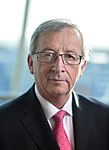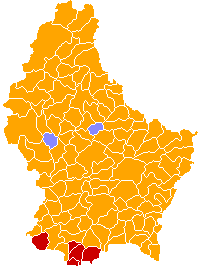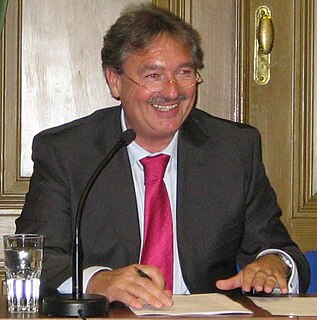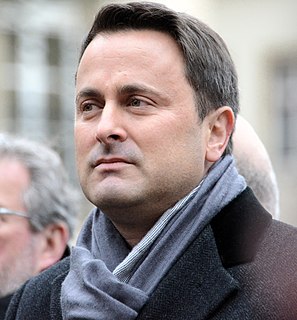| |||||||||||||||||||||||||||||||||||||||||
| |||||||||||||||||||||||||||||||||||||||||
All 60 seats in the Chamber of Deputies 31 seats were needed for a majority | |||||||||||||||||||||||||||||||||||||||||
|---|---|---|---|---|---|---|---|---|---|---|---|---|---|---|---|---|---|---|---|---|---|---|---|---|---|---|---|---|---|---|---|---|---|---|---|---|---|---|---|---|---|
| |||||||||||||||||||||||||||||||||||||||||
Results: CSV LSAP DP | |||||||||||||||||||||||||||||||||||||||||
| |||||||||||||||||||||||||||||||||||||||||
 |
|---|
| This article is part of a series on the politics and government of Luxembourg |
| Constitution |
Monarchy |
| Foreign relations |
General elections were held in Luxembourg on 13 June 2004, [1] alongside European Parliament elections. The ruling Christian Social People's Party (CSV) of Prime Minister Jean-Claude Juncker won the election, increasing its number of seats to its highest since before 1989 and its share of the vote to levels not seen since the 1959 election.

Luxembourg, officially the Grand Duchy of Luxembourg, is a small landlocked country in western Europe. It is bordered by Belgium to the west and north, Germany to the east, and France to the south. Its capital, Luxembourg City, is one of the three official capitals of the European Union and the seat of the European Court of Justice, the highest judicial authority in the EU. Its culture, people, and languages are highly intertwined with its neighbours, making it essentially a mixture of French and German cultures, as evident by the nation's three official languages: French, German, and the national language, Luxembourgish. The repeated invasions by Germany, especially in World War II, resulted in the country's strong will for mediation between France and Germany and, among other things, led to the foundation of the European Union.

The Christian Social People's Party, abbreviated to CSV or PCS, is the largest political party in Luxembourg. The party follows a Christian-democratic ideology and, like most parties in Luxembourg, is strongly pro-European. The CSV is a member of the European People's Party (EPP) and the Centrist Democrat International (CDI).
Contents
As expected, the CSV won a plurality of seats, adding 5 new deputies, and continued as the majority partner in the coalition government. However, the junior partner changed from the liberal Democratic Party (DP), which lost 5 seats, to the Luxembourg Socialist Workers' Party (LSAP), which gained one seat. The Greens also slightly increased their representation, whilst the Alternative Democratic Reform Party (ADR) lost ground.
The Democratic Party, abbreviated to DP, is the major liberal political party in Luxembourg. One of the three major parties, the DP sits on the centre to centre-right, holding moderate market liberal views combined with a strong emphasis on civil liberties, human rights, and internationalism.

The Luxembourg Socialist Workers' Party, abbreviated to LSAP or POSL, is a social-democratic political party in Luxembourg. The LSAP is the second-largest party in the Chamber of Deputies, having won 13 of 60 seats at the 2013 general election, and has one seat in the European Parliament. The LSAP is currently part of the Bettel–Schneider government, with Etienne Schneider of the LSAP serving as Deputy Prime Minister. Since March 2014, the party's President has been Claude Haagen.

The Greens is a green political party in Luxembourg.
The election coincided with the 2004 European Parliament election.

















